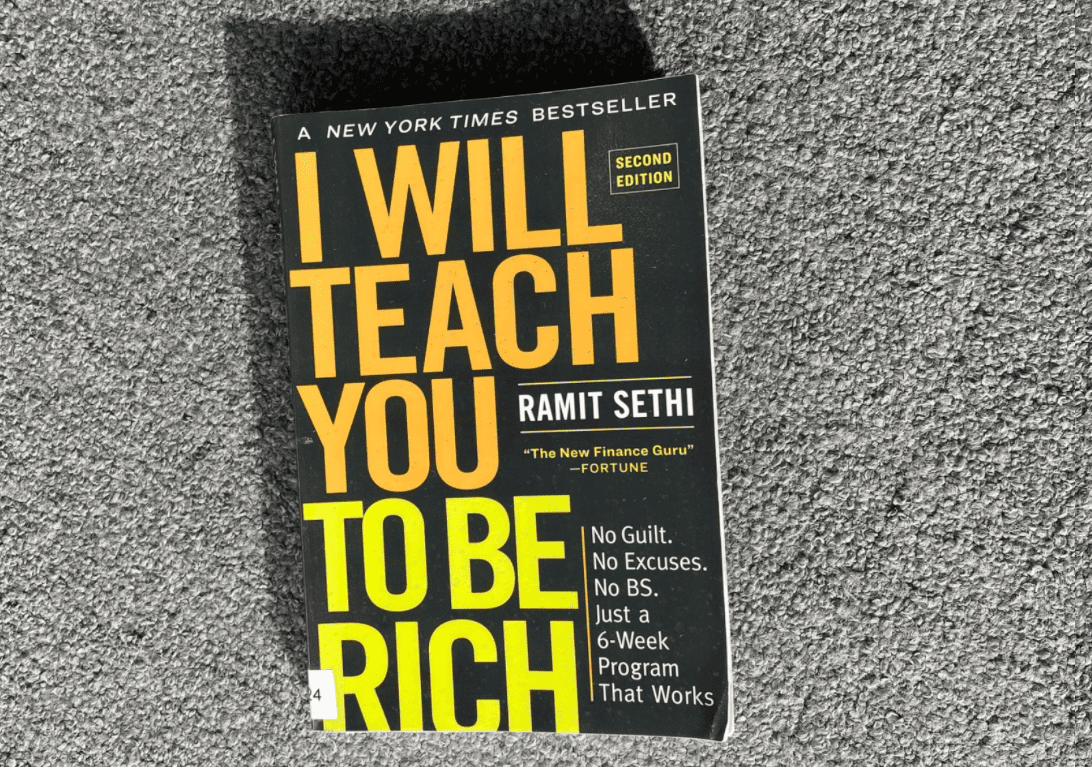Background
If you have watched the Netflix series “How to get rich?” or Ramit’s YouTube videos, you know his voice. He writes with the same strong tone he speaks with. He’s not here to massage your ego. He’s here to tell you hard truths.
That matter-of-factly voice shines through the pages.
His writing style is authentic, like talking to a friend who doesn’t take instructions. Sometimes, it seems a bit harsh; at other times, it is hilarious.
Ramit calls out institutions he thinks are unfair and recommends the ones he love. No mincing words.
You get what you’re promised – a 6-week program that will help you revamp your personal finance. The book “I will teach you to be rich” is informative and practical. In this post, I will share what I learned from reading this book.
The Rise of Victim Culture
You may have seen this play out. You tell your friend that you only eat chicken once a week, and your friend responds “oh you even eat chicken. I can’t even remember when last I ate chicken”.
Ramit gave this example: You talk about investing and you get this response ” Lol! Invest? I can’t even save enough for pizza.”
The victim culture is a game to find out who the bigger victim is.
No matter the advice, some people will give a reason why they just can’t save, invest, or earn enough. Before you say that there are people who really can’t afford to invest, hold on. We know.
I love when authors bring in their critics in at the start. It makes for a robust conversation.
It is instructive that Ramit started the book with acknowledging the victim culture. It’s like telling the cynics, “Hold on, I see you. You will find an excuse.”
He listed the possible excuses for not managing money and then said “listen up crybabies.”
Your excuses have been noted and your excuses are valid. Now, why do you want to be rich?
Think about what rich means to you. “… Spend extravagantly on the things you love as long as you cut costs mercilessly on the things you don’t.” More on this later.
Debt

I used to roll my eyes at the idea of getting a credit card to improve credit scores. Where I lived, cash was king and most transactions required physical cash or transfer.
However, note that a limited credit history may translate to higher interest rate, ultimately spiraling in increased interest payment. This depends on where you live, as not every credit system mandates a credit history in exchange for a favorable interest rate.
If you have credit card debt, pay your debt monthly. Know what you owe and what you own. This will help you avoid unnecessary overdraft fees.
Also, keep a log/transcript of your conversations with finance companies. This will prove invaluable if you are unfairly.
With Ramit, you can negotiate anything – credit card fees, interest rates, late fees, just name it. There are templates in this book on how to negotiate. The templates are direct and detailed.
Now, to banks. We need them on this financial journey.
What to look out for when choosing a bank
- Trust: What reputation do they have?
- Convenience: How easy is it to reach them or use their services?
- Features: How usable is the app? What interest rate do they offer?
This is also a useful checklist when choosing investment companies and other finance institutions.
Once you’ve made the right banking choice, the next step is practicing conscious spending.
What is conscious spending?
Conscious spending means that you decide exactly where you’re going to spend your money – for eating out, for saving, for investing, for ren. And then, you free yourself from feeling guilty about your spending.
Ramit says conscious spending is different from budgeting. I beg to differ. I know Ramit will not like this but the definition of conscious spending is the same as budgeting, in my opinion.
Automate your finances
One crucial step in managing your finance is automation.

Automate your saving and investing, and spend on the things you love without guilt. (I note that Ramit says spend extravagantly, but I don’t think you have to spend extravagantly on the things you love to derive great value. At some point, additional spending will not give you additional satisfaction. It’s what the economists call marginal utility.)
Anyway, decide how much you are going to save and invest. Set this up automatically every month through a standing order. Most bank apps offer this service.
If you have to make your investing decision every month, you will likely not be consistent. Follow the path of least resistance and automate your savings.
Subscriptions
Do you ever stop to think about those paltry subscriptions that snatch a few bucks from your account? Well, surprise – they do add up!
Use the à la carte method – cancel all discretionary subscriptions and pay for them as you go. Subsequently, you can decide if you actually use the gym or watch enough movies to justify the monthly debit alerts.
Investing
We are not saving all this money to watch it go down the drain.
Surprise! Most financial experts can’t beat the market. Ramit explained how financial experts hide their poor performance using survivorship biases. The performance of closed funds are not included in the performance results. You get to see the result of the surviving funds. But what about those funds that were closed?
You may be better served by investing in an index fund. An index fund is a collection of different companies’ stocks so that you can own a piece of each company. An index fund is like a mirror, reflecting the market’s moves. Since they don’t spend time picking the best stocks, the fees tend to be lesser.
Over the course of your lifetime, you could be doling out hundreds of thousands of dollars if you hire a financial advisor. If you do hire one, ask them if they are a fiduciary. A fiduciary is obligated to act in your best interest.
Be wary of funds with high fees. The returns may not justify the fees as fees eat up a huge portion of your investment return with time.
Conclusion
Reading “I Will Teach You to Be Rich” by Ramit Sethi has been nothing short of enlightening. Ramit’s unapologetic, no-nonsense style hits you like a jolt of reality, and it’s exactly what we need when it comes to managing our finances.
Start taking control of your financial future today. Avoid dwelling on your excuses, automate your finances as much as possible, and make conscious spending decisions. Every action counts.
P.S. In the 2019 edition, Ramit said his fantasy ” is to host a TV show where couples have their first conversations about money together….” HE DID IT. ON NETFLIX, in 2023!!! That is just amazing. Congrats Ramit.
Check out my review of Your Money or Your Life, another fantastic personal finance book.
Shout out to Trina Lynne. I had an insightful call with her this week about blogging. She writes beautifully and is on a 97-day writing streak. Well done, Trina.
Please note that this is not an investment advice. It is written for general informational purpose.

Thank You